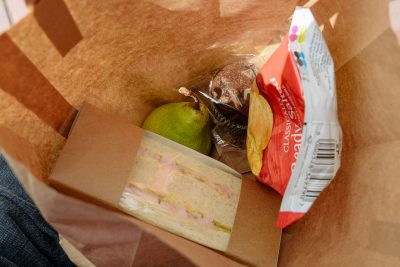Massachusetts children who receive supplemental security income — a taxpayer-funded benefit program for Americans with limited income and resources, including children with disabilities — can more easily qualify for subsidized lunches starting this month, following a change in federal policy last week.

Children who qualify for Medicaid because they receive SSI can now be directly enrolled in the U.S. Department of Agriculture’s National School Lunch Program, making them automatically eligible for Pandemic Electronic Benefits Transfer, according to a Thursday press release by the Massachusetts Executive Office of Health and Human Services.
Pandemic EBT is a national food-scarcity program that provides families who received free or reduced-price meals before the pandemic with additional funds to purchase food in response to school closures.
The extension of benefits comes almost a year after the outbreak of COVID-19, which forced many schools to transition to hybrid and remote learning — a change that has been uniquely impactful to students who relied on subsidized lunches to eat.
“This benefit is important during a time of increased food insecurity for families in the state due to the economic impact of COVID-19,” Marylou Sudders, secretary of Health and Human Service, said.
The change will extend lunch benefits to roughly 2,600 children with disabilities who live with a family caregiver, such as a grandparent, and were previously ineligible for direct certification — meaning they would not need to fill out a household application based on Medicaid eligibility.
Newly eligible children then automatically meet the requirements for Pandemic EBT, according to the Department of Transitional Assistance.
Students attending classes in a hybrid model are eligible to receive $58.60 per month, while those attending school fully remote get $117.20. Funds are available for use on a state-issued card.
P-EBT has been extended by the federal government for the remainder of the 2020-21 school year.
The first round of benefits will be distributed to newly eligible families Feb. 25, according to the press release.
Although need has been accelerated by the pandemic, for several years the Commonwealth has been pushing for federal approval of expanded direct certification for these students, according to the press release.
Food insecurity among Massachusetts families with children more than doubled in 2020, according to data from a Current Population Survey Food Security Supplement for years 2001-2019 and the Census Bureau Household Pulse Survey for 2020.
In 2019, nine percent of families with children faced food insecurity and in 2020, that figure reached 19 percent, according to the study.
“Usually, people think that Boston is a city of wealth, but actually we have a pretty high poverty rate,” said Laura Benavidez, executive director of food and nutrition services for Boston Public Schools.
Nearly 29 percent of children in Boston live below the poverty line, according to the Boston Redevelopment Authority’s most recent report on the city’s children, published in 2014.
Many BPS students come to school to get breakfast and lunch through the National School Lunch Program, Benavidez said. At the onset of the pandemic, BPS began providing students food through local YMCAs, libraries and home deliveries via school buses.
“We worked very quick with our partners and we collaborated with a lot of our partners within the city to make sure that we created a lot of different ways to have children have access to meals,” she said.
Benavidez added that children of color are more likely to struggle with food insecurity, which is a trend nationwide.
Statewide food insecurity increased among all demographic groups from 2019 to 2020, but remained highest among non-white individuals, according to the Census Bureau Household Pulse Survey.
The percentage of Latinx adults reporting low food security in Massachusetts increased from 24 to 26 percent.
Among Black and Asian communities, food insecurity more than doubled. Twenty-four percent of Black respondents experienced insecurity in 2020 compared to 10 percent in 2019. Thirteen percent of Asian respondents dealt with food insecurity, a figure that was five percent in 2019.
Seventy-eight percent of BPS students qualify for some degree of free or reduced lunch.
“We wanted to make sure that we were thinking through all of the different variables and possible barriers to come and pick up meals,” Benavidez said.
However, sometimes families need more than just food to stay afloat. Other essential items, such as toiletries and learning materials, are not included in P-EBT.
Benavidez said BPS worked to provide those non-eligible items to families picking up lunches.
“A lot of our partners get access to a lot of different things we need that are not necessarily luxuries … toilet papers, all kinds of things,” Benavidez said. “It’s recognizing it’s not just about food but it’s other things to be able to stimulate the mind and also meet basic needs for the family.”


















































































































